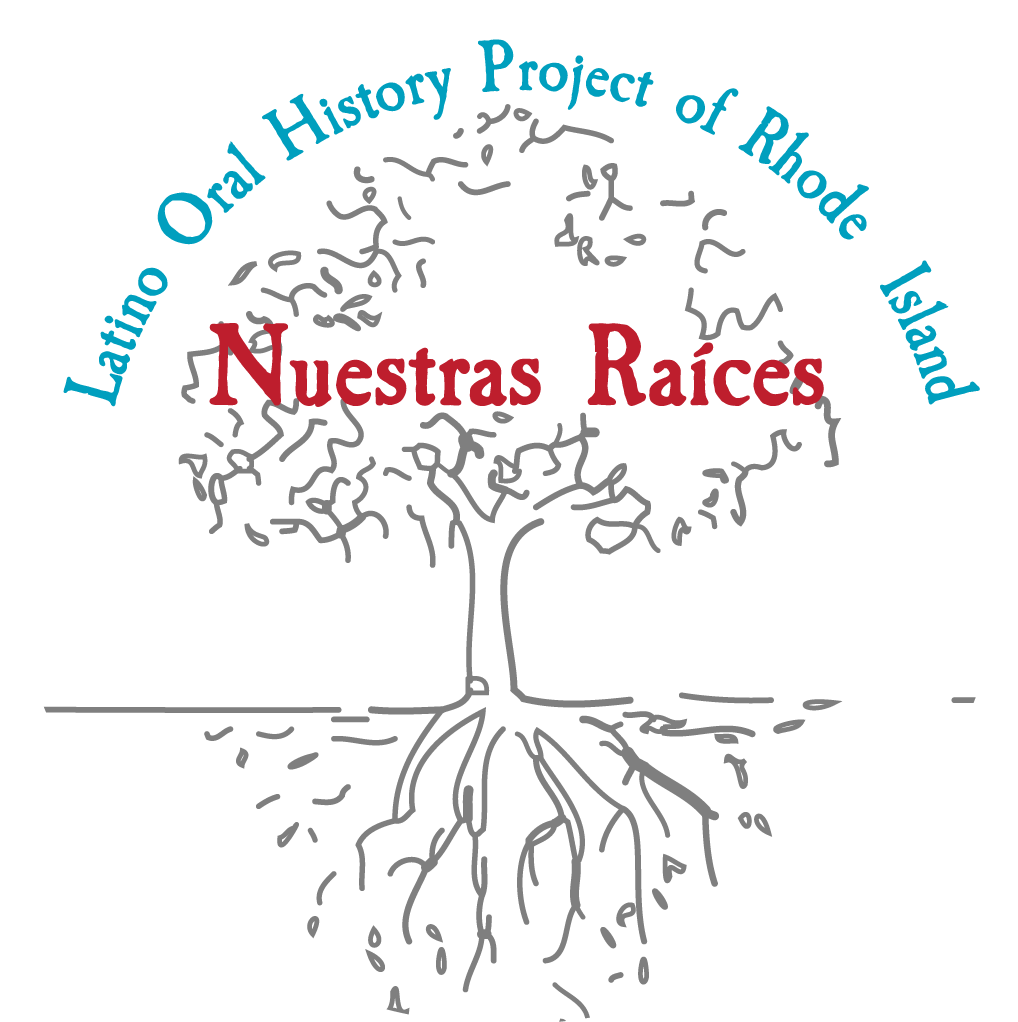3. Latin American Community Center (LACC) | 3 Harvard Avenue | Providence, RI 02907

The photo above shows Arturo Liz, President-elect of LACC and Fr. Raymond Tetrault, Director of the Latin-American Apostolate of Providence Diocese, on the opening day of the center, October 26, 1970. LACC closed its doors in 1974 and eventually the building was razed and there are no remnants that it ever existed, outside of newspaper articles found in the Catholic newspapers.
If you have a memory/story to share about LACC with the Latino Oral History Project, please contact us.
If you have a memory/story to share about LACC with the Latino Oral History Project, please contact us.
— photo Michael J.B. Kelly, Providence Journal
In the early 1970s, the Latino community began to come together to organize in an attempt to gain access to social services. The work of pioneers such as Doña Fefa and Juanita Sánchez, brothers José and Roberto González, among others, laid a foundation, but individuals can only do so much, and soon people began to realize the need to form service organizations. In 1970, this need was answered in the form of the Latin American Community Center (LACC), which was financially supported and encouraged by the Catholic Diocese of Providence.
Located at 3 Harvard Avenue, LACC opened its doors on October 25, 1970 with the help of Board President Arturo Liz and the Rev. Raymond Tetreault, Director of the Latin America Apostolate of Rhode Island. Mercedes Messier was appointed as its first Executive Director. Much like Fefa’s Market in the early 1960s, the center acted as a problem-solving agency, and its main purpose was to help Latinos adjust to life in America. Many of the new immigrants could not speak English, so they had no way of finding out how to fulfill their basic needs. The center provided a place where Latinos could go and explain their difficulties, and the staff would refer them to the appropriate city or state agency for service. LACC’s staff also helped find jobs for newcomers and offered English language classes for both adults and children.
In addition to these crucial social services, the center was a means for bringing together people from different Spanish-speaking countries, including Honduras, Guatemala, the Dominican Republic, Cuba, Puerto Rico, Bolivia, Colombia, Uruguay and Venezuela. Unlike many other cities in the United States, the Providence Latino community appear to be a relatively cohesive group, and early efforts such as this community center are a possible explanation for this.
Located at 3 Harvard Avenue, LACC opened its doors on October 25, 1970 with the help of Board President Arturo Liz and the Rev. Raymond Tetreault, Director of the Latin America Apostolate of Rhode Island. Mercedes Messier was appointed as its first Executive Director. Much like Fefa’s Market in the early 1960s, the center acted as a problem-solving agency, and its main purpose was to help Latinos adjust to life in America. Many of the new immigrants could not speak English, so they had no way of finding out how to fulfill their basic needs. The center provided a place where Latinos could go and explain their difficulties, and the staff would refer them to the appropriate city or state agency for service. LACC’s staff also helped find jobs for newcomers and offered English language classes for both adults and children.
In addition to these crucial social services, the center was a means for bringing together people from different Spanish-speaking countries, including Honduras, Guatemala, the Dominican Republic, Cuba, Puerto Rico, Bolivia, Colombia, Uruguay and Venezuela. Unlike many other cities in the United States, the Providence Latino community appear to be a relatively cohesive group, and early efforts such as this community center are a possible explanation for this.
By providing a physical space for people to congregate, contacts were formed, which then led to the creation of alliances and social service organizations. These organizations were community-based and not political. In the words of one of Rhode Island’s early Latino activists:
◆ “Politics were, for us, at that time, very non-existent and it was more at the level of community organizations that evolved through the Catholic Church and independent movements that we concentrated our efforts. Not necessarily directly involved in the political arena, because we felt that we were not wanted there. We felt like outsiders. But at the same time we also felt that we needed to do something to exert our rights, to advocate and to protect the community on a number of issues that we felt were very important.” (Juan Francísco interview 2000)
After a very successful beginning and much activity, due to financial difficulties, unfortunately, LACC was forced to close its doors in 1974. It was then that the task of mobilizing the community fell upon the shoulders of a small group of Latinos who had worked hard to gain access and better understanding of the needs of the Hispanic Community in that era.
◆ “Politics were, for us, at that time, very non-existent and it was more at the level of community organizations that evolved through the Catholic Church and independent movements that we concentrated our efforts. Not necessarily directly involved in the political arena, because we felt that we were not wanted there. We felt like outsiders. But at the same time we also felt that we needed to do something to exert our rights, to advocate and to protect the community on a number of issues that we felt were very important.” (Juan Francísco interview 2000)
After a very successful beginning and much activity, due to financial difficulties, unfortunately, LACC was forced to close its doors in 1974. It was then that the task of mobilizing the community fell upon the shoulders of a small group of Latinos who had worked hard to gain access and better understanding of the needs of the Hispanic Community in that era.
Read more about LACC here ➤


